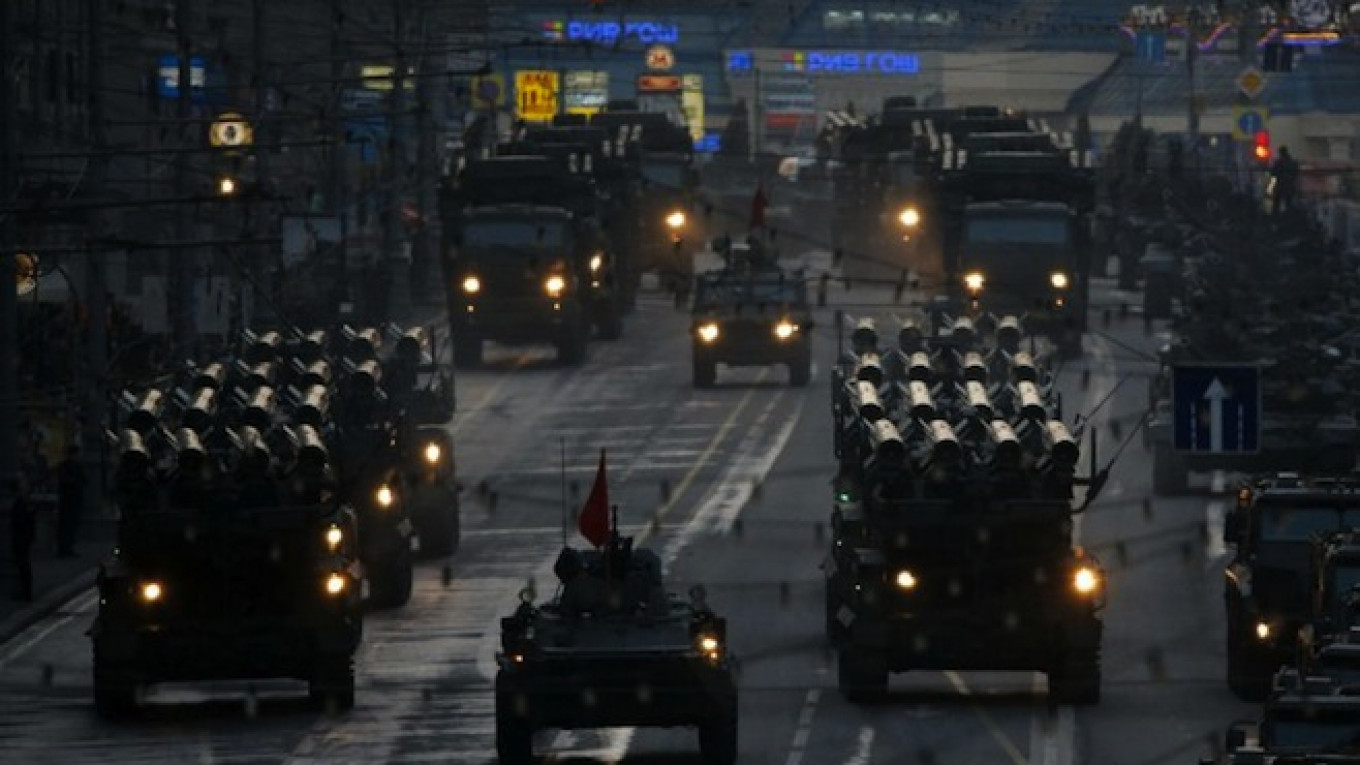Lithuania is publishing a manual to advise its citizens on how to survive a war on its soil as the country's Defense Minister warn its Russian neighbor "is not friendly."
"Keep a sound mind, don't panic and don't lose clear thinking," the manual explains. "Gunshots just outside your window are not the end of the world."
The manual, which the Defense Ministry will send to libraries next week and also distribute at army events, says Lithuanians should resist foreign occupation with demonstrations and strikes, "or at least doing your job worse than usual."
In the event of invasion, the manual says Lithuanians should organize themselves through Twitter and Facebook and attempt cyber attacks against the enemy.
Lithuania spent much of the last century incorporated in Soviet Union, along with Latvia and Estonia, and upon independence in 1991 quickly sought to join the Western NATO alliance and the European Union.
It is increasingly worried about Russia, not least because of a military drill in the Russian exclave of Kaliningrad last month that featured 9,000 soldiers and more than 55 naval vessels.
"The examples of Georgia and Ukraine, which both lost a part of their territory, show us that we cannot rule out a similar kind of situation here, and that we should be ready," Defense Minister Juozas Olekas said.
"When Russia started its aggression in Ukraine, here in Lithuania our citizens understood that our neighbor is not friendly," Olekas added.
The Lithuanian army and its paramilitary reserve force have seen increased recruitment since the crisis in Ukraine.
The government is also considering requiring all future buildings to incorporate a bomb shelter on the premises.
Russia annexed the Crimean peninsula from Ukraine last year, and Western governments say they have overwhelming evidence that it is supplying troops and weaponry to pro-Russian separatists who have seized parts of eastern Ukraine, an accusation that Moscow denies.
A Message from The Moscow Times:
Dear readers,
We are facing unprecedented challenges. Russia's Prosecutor General's Office has designated The Moscow Times as an "undesirable" organization, criminalizing our work and putting our staff at risk of prosecution. This follows our earlier unjust labeling as a "foreign agent."
These actions are direct attempts to silence independent journalism in Russia. The authorities claim our work "discredits the decisions of the Russian leadership." We see things differently: we strive to provide accurate, unbiased reporting on Russia.
We, the journalists of The Moscow Times, refuse to be silenced. But to continue our work, we need your help.
Your support, no matter how small, makes a world of difference. If you can, please support us monthly starting from just $2. It's quick to set up, and every contribution makes a significant impact.
By supporting The Moscow Times, you're defending open, independent journalism in the face of repression. Thank you for standing with us.
Remind me later.


